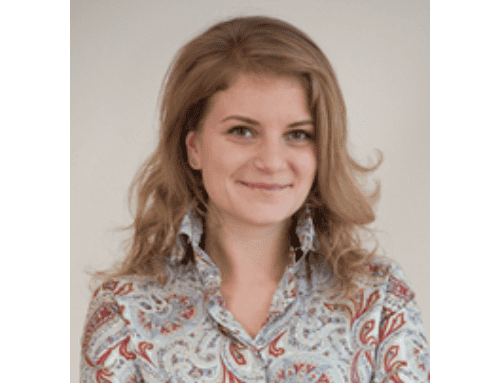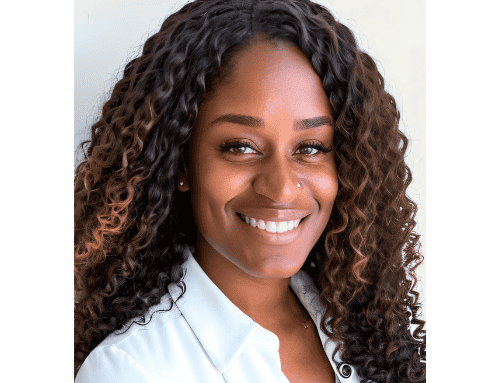With Dr. Saskia Sivananthan, healthcare leader and Affiliate Professor in the Department of Family Medicine at McGill University. The link between discrimination and your health is undeniable. Discrimination based on gender and other connected factors like our race and ability impacts our health in so many ways. For example, we get treated differently based on our gender in healthcare settings. Our access to relevant health services and options differs wildly depending on our gender. Even the medical research that gets funded and acted on depends on our gender.
May 28 is International Day of Action for Women’s Health. For the next few episodes, we’ll focus on gender and health matters.
Our guest Dr. Saskia Sivananthan is a healthcare leader and advocate building strategies and solutions for older adults. As Affiliate Professor in the Department of Family Medicine at McGill University and former Chief Research & Knowledge Translation Officer at the Alzheimer Society of Canada, she shines a spotlight on the needs of people living with dementia. In 2020, she was appointed to the federal Ministerial Advisory Board on Dementia, and she has worked with many bodies and organizations including the OECD. Dr. Sivananthan is a neuroscientist and health data scientist who has contributed to several international publications, articles, and reports.
Transcript
00:00:04 Saskia
We know that dementia impacts two-thirds of women, so more women than men are impacted when you’re looking at the overall population, and that’s people living with dementia and developing dementia. But when you think about it from a caregiving lens, again, women tend to be more impacted because they tend to be caregivers.
00:00:26 Andrea
What does gender have to do with dementia?
I’m Andrea Gunraj from the Canadian Women’s Foundation.
Welcome to Alright, Now What? a podcast from the Canadian Women’s Foundation. We put an intersectional feminist lens on stories that make you wonder, “Why is this still happening?” We explore systemic routes and strategies for change that will move us closer to the goal of gender justice.
The work of the Canadian Women’s Foundation and our partners takes place on traditional First Nations, Métis, and Inuit territories. We are grateful for the opportunity to meet and work on this land, however, we recognize that land acknowledgements are not enough. We need to pursue truth, reconciliation, decolonization, and allyship in an ongoing effort to make right with all our relations.
00:01:18 Andrea
The link between experiences of discrimination and your health and wellness is undeniable. It’s all about the “social determinants of health”.
Discrimination based on gender and other connected factors, like our race and ability, impacts our health in so many ways. For example, we get treated differently based on our gender in healthcare settings. Our access to relevant health services and options differs wildly depending on our gender. Even the medical research that gets funded and acted on depends on our gender.
In honour of International Day of Action for Women’s Health, we’re focusing on gender and health matters we may know bits and pieces of but probably need to learn more about.
Our guest Dr. Saskia Sivananthan is a healthcare leader and advocate building strategies and solutions for older adults. As Affiliate Professor in the Department of Family Medicine at McGill University and former Chief Research & Knowledge Translation Officer at the Alzheimer Society of Canada, she shines a spotlight on the needs of people living with dementia.
In 2020, she was appointed to the federal Ministerial Advisory Board on Dementia, and she has worked with many bodies and organizations, including the OECD. Dr. Sivananthan is a neuroscientist and health data scientist who has contributed to several international publications, articles, and reports.
00:02:42 Saskia
I am a health service researcher. I really focus mainly on using data, so really I’m a data scientist. My specialization is in dementia. I think my passion has always been around helping older adults, especially people living with dementia.
It started with wanting to help them navigate the health system better, but as I started working and learning more, I realized the system itself needs work. And so, I’ve shifted a lot of my focus to working at a systems level.
I’m the former Chief Research & Knowledge Translation Officer at the Alzheimer Society of Canada and previous to that, I worked at the WHO. Again, it goes back to that passion of wanting to really serve and work with people living with dementia, but to be able to build a more resilient system and a pathway of care.
I’m quirky overall, so you’d have to get to know me better, but I think the story that might help people understand a bit more about my own journey is back when I was a grad student at McGill, I was looking for a place to rent and got into this lovely apartment. As it turned out, it was for older adults only—it was a seniors’ rent controlled building—and they just happened to open it up for me.
I became really good friends with my neighbour, Vince. He had early dementia and I became basically his proxy caregiver—he had no family and so I just started filling in the gaps. That’s where I really recognized how poorly our system is set up as we age. It’s not meant to respond to aging needs, but it definitely wasn’t set up for anyone living with dementia. It changed the entire trajectory of my career.
00:04:27 Andrea
First things first, what is dementia and what’s the gendered story of dementia?
00:04:32 Saskia
Such a great question—an important one and also one where I’d say we have not done a good job and don’t have a lot of research or evidence or data around. But let me take that step back and first answer your question, “What is dementia?”
Think of dementia the way you would think about heart and stroke issues or cancer. It’s a big term. It’s an umbrella term for almost 400 diseases under that umbrella, and so people don’t recognize or often understand that. They think it’s one disease type.
The most common form of dementia is Alzheimer’s disease, so that’s what you hear about the most. But there are a range of others. The next most common is vascular dementia, so it’s a dementia that happens usually after a heart event—a vascular event, like stroke. But then there are many other kinds, for example frontotemporal dementia, which is a type of dementia that tends to impact people a bit younger.
The key thread across all of these diseases is certainly memory loss, and this I think we’re familiar with. But people don’t often also realize that there are different types of symptoms and they present differently depending on the type of dementia you have, and they can present first instead of the memory loss. So, if we talk about frontal temporal dementia—as I said, it tends to impact people younger in their 50s, and it’s often not memory loss that’s the first symptom. It’s behavioural changes, it’s language changes.
So, there are many other symptoms to really look out for when you’re thinking about dementia. But the most important thing about it is it’s an umbrella term and it’s a collection of diseases. They’re not normal aging, and that’s another important thing that often gets missed.
But let me come back to the second question about gender and how dementia—and I’ll use the term dementia broadly here—how it impacts women, men, gender-diverse individuals. And I’d start by saying that we don’t understand a lot of it.
We know that dementia impacts two-thirds of women, so more women than men are impacted when you’re looking at the overall population, and that’s people living with dementia and developing dementia. But when you think about it from a caregiving lens, again, women tend to be more impacted because they tend to be caregivers.
Now, there’s sex and there’s gender. So, we’re talking about it here from a sex difference. And what had been an assumption for a long time is that women were developing dementia because they probably live longer, and so the higher likelihood of developing dementia.
But there’s a huge body of evidence now demonstrating that that’s not just the reason. It is part of the driver, but there’s a range of other things. So, for example, hormonal differences that might be impacting the risk of developing dementia, brain structure differences, even brain functionality differences.
There are biological drivers that are potentially causing those differences, and then there’s gender differences as well. There are opportunities that would have impacted risk over a lifetime and that could also drive some of the differences that we’re seeing.
I talked about more who was experiencing dementia, and when I talked briefly, I mentioned caregivers. So, right now there are just over 750,000 Canadians who are living with dementia. But the projections over the next 25 to 30 years is that that will go up to 1.7 million. So, it’s a big increase.
And there was a series of reports that were recently launched from the Alzheimer Society, and that was implemented while I was there because I realized, as a woman and a person of colour, that we didn’t really understand very much about how dementia was impacting us from a gendered perspective and how dementia was also impacting us from an ethnic and racial diversity perspective.
And one of the things that came out of that is that there’s also a big shift in who will be living with dementia over the next 30 years from a diversity—a racial diversity—as well as a gendered perspective.
The other piece, exactly as you touched upon, is unpaid labour. So, we’re talking about people who are providing care, because with dementia, as it progresses, the person is eventually unable to care for themselves, right? Those activities of daily living—things like getting dressed, bathing, eating, things like that—as time goes and the severity of dementia continues, is something they can’t provide. So, they need someone, a caregiver, to provide that care.
That unpaid care is provided often by a family member. Usually, a female family member is involved in that. But there’s also paid care, and that’s care in long-term care, in residential care, and that also is predominantly female-driven—and it’s also women of colour who are providing that care.
So, there’s a lot to unpack in those different levels. And I think the whole thing that is really something that needs to be explored more is what’s called the “care economy.” This is care that comes at a cost. So, when a woman chooses to provide care to a loved one, she is also stepping away from career prospects—might be taking the pedal off of that trajectory of accepting promotions and really moving up. That’s part of the paid economy that is measured, but that unpaid economy is equally important and unmeasured.
And then of course there are children also, so then we talk about a “sandwich generation,” where you’re providing care for young children and for older adults, and how do you navigate and manage that? That same economy gets reflected in paid care, in long-term care, and residential care, where, you know frankly, what we pay—they’re often called PSWs (Personal Support Workers)—hasn’t really been explored in terms of that value add and the quality of life that is supported over time.
And then we also haven’t talked about gender diversity and the LGBTQ+ community and how they experience dementia. So, there have been some fantastic reports that have come out recently, especially from an organization called Egale, that have started exploring that a bit more and doing some fantastic work. Because there’s fear when anyone is thinking about dementia. That’s part of the stigma of that disease—that fear of losing your identity. And that’s triple fold for someone from the LGBTQ+ community because it feels like you’re being put back in the closet, right? You’re losing that identity, that you have to work so hard to be able to speak about and be open about, and then the kind of care to support that is just not even considered when we think about long-term care, residential care, and that overall continuum of care.
There’s a lot to unpack, I think, generally around the differences from a gendered perspective and a sex perspective. But for me, as a data scientist, I think what really drives a lot of my motivation to continue to do this work is that we’re not measuring it. We’re not thinking about it. And so, when we’re doing clinical studies, you know, how carefully are we thinking about recruiting the right number of participants from a sex, from a gender perspective, from a race [and] ethnicity perspective?
That representation is hugely important when you’re then translating that into the kinds of treatment and care over time that’s so important.
00:12:49 Andrea
Would you say we’re doing better recognizing the way dementia impacts us differently depending on who we are? What needs to change?
00:12:57 Saskia
I think there’s been a huge movement more recently to consider and think about things from an intersectionality lens. So, I don’t want it to be all doom and gloom—it’s not.
Certainly, it’s more on the radar and I think that’s just recognizing the multifaceted identities that we all have and that we bring to the table and that those influence the overall trajectory of the disease [and] how we experience care.
And I think if you read the news, you’ll see, of course, a lot of the negative experiences and they’re accurate and they do exist. But there are also very positive experiences if you’re thinking about interactions, especially within residential long-term care, where they’re starting to have recognition.
For example, let’s talk about a person of colour who maybe has a different religious background, and their first language is not English anymore—especially with dementia, as that progression happens, you lose that most recently learned language. So, there’s a whole host of intersectional identities to consider there in the way care is provided. And so, this is where person-centered care becomes so important to the way each person is treated. It’s almost like tailoring and personalizing the support that you’re providing.
I lived in long-term care for a few weeks because I wanted to understand the experiences of people who are living there, especially people living with dementia. And there was this gentleman that I met. He was Sri Lankan Tamil, did not speak English anymore, he was one of the few people of colour, and also one of the few men. Since he had been there, the staff had barely heard from him, he never really spoke or interacted with them, and he was termed, you know, behaviourally difficult. This is language that’s used when, you know, with dementia, sometimes we don’t understand what the person might be trying to communicate, and it comes out in their behaviour.
It turned out later, as you started peeling and understanding the intersectional identities of this gentleman, it was: a) that he spoke Tamil and he remembered it, but that no one could understand him or communicate with him; b) he was Hindu, and very conservatively Hindu, and as part of that belief he wasn’t used to having personal care provided by females; and then c) food, which was important, and his overall value system was different from what was being provided in the care in long-term care.
Once you started understanding that, the staff were then able to make adaptations. They started having a male PSW providing bathing and personal care to him. The behavioural issues disappeared. They started communicating to him in language that he understood to cue him and to support him better, and things changed. His daughter started cooking and bringing meals that he recognized and understood, and it improved and changed his quality of life overall. And those are just a few of the multiple identities and intersections of care.
And I think what dementia really forces us to do is to think about care in that way and to think about, “What is quality of life?” It’s different from medical quality of life.
We tend to medicalize most of older adults. We get to the point where it’s like, “Ok, you’ve got this chronic disease, and you’ve got arthritis, and you’ve got kidney disease.” And so, you’re tackling all of the diseases and you’re not talking to the holistic person— understanding the intersectionalities of who they are and what might be important for them in that end stage of their life. And I don’t mean death. I mean, just the end stage of their life and how they want to live out their life.
00:16:52 Andrea
Can you offer tips and advice for listeners concerned about the gendered impact of dementia in their lives and the lives of their loved ones?
00:17:00 Saskia
There are some resources that are being developed and, as I mentioned, Egale has some fantastic resources, as well as the Alzheimer’s societies overall are starting to produce more resources around this.
But something to think about if you have a loved one where you’re concerned or worried, or someone you know [who] you’re worried might be developing dementia: think about it from that sex and gendered difference lens. For example, the rate of progression of dementia is different depending on if you’re a woman versus a man. Changes in mood, personality, and behaviour present differently if you’re female versus men. Depressive symptoms can be different for women versus men. And then, of course, the diagnosis can be so difficult because of that gendered and sex lens.
And so, this is where advocating to really push your clinician, your family physician, to get down and understand the person better, and advocating to make sure that their voice is being heard in that process, is really important. Because we’re not at the point yet where we have good structures in place around the diagnosis and around the treatment. And so, advocates are really important in supporting the person as they’re going through their journey.
00:18:22 Andrea
Alright, now what? Check out the Alzheimer Society of Canada’s website alzheimer.ca. Check out Egale Canada’s Help Us Remain campaign on their website egale.ca/dementia.
If you want to make sure no woman, girl, Two Spirit, trans, or nonbinary person feels out of options, out of sight, out of time, or out of mind, visit yescountmein.ca today. When you count yourself in, you’ll join over 66,000 people in the Canadian Women’s Foundation’s generous and active community. You’ll get tools and opportunities to advance gender equality. This movement needs you. Visit yescountmein.ca and count yourself in today.
Please listen, subscribe, rate, and review this podcast. If you appreciate this content, please consider becoming a monthly donor to the Canadian Women’s Foundation. People like you will make the goal of gender justice a reality. Visit canadianwomen.org to give today and thank you for your tireless support.






